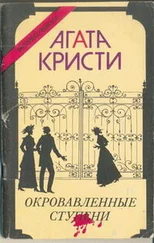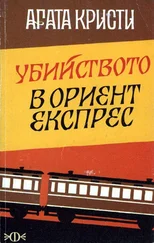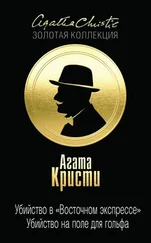curious [ˈkjʋ(ǝ)rɪǝs] tensity [ˈtensɪtɪ] suicide [ˈs(j)u:ɪsaɪd] anxiety [æŋˈzaɪǝtɪ] precaution [prɪˈkɔ:ʃ(ǝ)n]
The General’s — his General’s — temper had grown worse and worse. And then there had come this Belgian stranger — all the way from England, it seemed. There had been a week — a week of curious tensity. And then certain things had happened. A very distinguished officer had committed suicide, another had suddenly resigned, anxious faces had suddenly lost their anxiety, certain military precautions were relaxed. And the General, Lieutenant Dubosc’s own particular General, had suddenly looked ten years younger.
Dubosc had overheard part of a conversation (Дюбоск невольно услышал часть разговора; to overhear (overheard) — подслушивать; нечаянно услышать) between him and the stranger (между генералом: «ним» и иностранным гостем) . “You have saved us, mon cher (вы спасли нас, мой друг/дорогой вы наш; mon cher — фр. мой друг) ,” said the General emotionally (говорил генерал с волнением) , his great white moustache trembling as he spoke (его большие седые усы дрожали при этом: «когда он говорил»; white — белый; седой; to speak (spoke, spoken)) . “You have saved the honour of the French Army (вы спасли честь французской армии) — you have averted much bloodshed (вы предотвратили большое кровопролитие; to avert — предотвращать, отражать /особ. что-либо неприятное/; much — очень, много) ! How can I thank you (как я могу отблагодарить вас) for acceding to my request (за /то, что вы/ удовлетворили мою просьбу; to accede to — офиц. вступать /в должность, владение и т.д./; соглашаться) ? To have come so far (приехать в такую даль: «так далеко») — ”
honour [ˈɔnǝ] bloodshed [ˈblʌdʃed] accede [ǝkˈsi:d] request [rɪˈkwest]
Dubosc had overheard part of a conversation between him and the stranger. “You have saved us, mon cher ,” said the General emotionally, his great white moustache trembling as he spoke. “You have saved the honour of the French Army — you have averted much bloodshed! How can I thank you for acceding to my request? To have come so far — ”
To which the stranger (by name M. Hercule Poirot) (на что незнакомец, которого звали мсье Эркюль Пуаро; M. — сокращ. от фр. Monsieur — мсье, господин) had made a fitting reply (дал: «сделал» подходящий/надлежащий ответ; to make (made) — делать, изготовлять; reply — ответ; to make + сущ. = выражает действие, соответствующее значению существительного) including the phrase (включавший фразу) — “But indeed, do I not remember (ну что вы, разве я не помню) that once you saved my life (что однажды вы спасли мне: «мою» жизнь) ?” And then the General had made another fitting reply to that (на что генерал дал еще один приличествующий ответ; to fit — соответствовать, годиться; подходить) , disclaiming any merit for that past service (отрицая какую бы то ни было заслугу за прошлую услугу; to disclaim — отказываться от чего-либо; не признавать, отрицать; any — в утвердительных предложениях: всякий, любой; какой бы то ни было; service — услужение; услуга, одолжение) ; and with more mention of France (все больше говоря о Франции) , of Belgium (Бельгии) , of glory (о славе) , of honour (чести) and of such kindred things (и тому подобных: «родственных» вещах; kindred — родственный; близкий, однородный) they had embraced each other heartily (они сердечно обнялись: «обняли друг друга»; heart — сердце; heartily — сердечно, искренне) and the conversation had ended (и /их/ разговор закончился; an end — конец, окончание) .
service [ˈsǝ:vɪs] kindred [ˈkɪndrɪd] heartily [ˈhɑ:tɪlɪ]
To which the stranger (by name M. Hercule Poirot) had made a fitting reply including the phrase — “But indeed, do I not remember that once you saved my life?” And then the General had made another fitting reply to that, disclaiming any merit for that past service; and with more mention of France, of Belgium, of glory, of honour and of such kindred things they had embraced each other heartily and the conversation had ended.
As to what it had all been about (что касается того, в чем же было все дело) , Lieutenant Dubosc was still in the dark (лейтенант Дюбоск пребывал все еще в неведении; dark — темнота, тьма; to be in the dark — быть в неведении) , but to him had been delegated the duty (но ему была поручена задача; to delegate — делегировать, посылать; передавать полномочия; duty — долг; миссия, задача) of seeing off M. Poirot by the Taurus Express (проводить мсье Пуаро на экспресс «Тавры») , and he was carrying it out (и он ее выполнял; to carry — нести; to carry out — исполнять, доводить до конца; выполнять /план, приказ и т.п./) with all the zeal and ardour (со всем рвением и усердием) befitting a young officer (приличествующим молодому офицеру; to befit — годиться, подходить; приличествовать) with a promising career ahead of him (перед которым /открывалась/ многообещающая карьера: «с многообещающей карьерой перед ним»; to promise — обещать; подавать надежды, сулить) .
“Today is Sunday,” said Lieutenant Dubosc (сегодня воскресенье, сказал лейтенант Дюбоск; to say (said) — говорить, сказать) . “Tomorrow, Monday evening, you will be in Stamboul (завтра вечером, в понедельник, вы будете в Стамбуле; Stamboul = Istanbul) .”
delegate [ˈdelɪɡeɪt] zeal [zi:l] ardour [ˈɑ:dǝ]
As to what it had all been about, Lieutenant Dubosc was still in the dark, but to him had been delegated the duty of seeing off M. Poirot by the Taurus Express, and he was carrying it out with all the zeal and ardour befitting a young officer with a promising career ahead of him.
“Today is Sunday,” said Lieutenant Dubosc. “Tomorrow, Monday evening, you will be in Stamboul.”
It was not the first time he had made this observation (уже не в первый раз: «это не был первый раз» он делал это замечание; to observe — наблюдать; сделать замечание, высказаться) . Conversations on the platform, before the departure of a train (разговоры на перроне перед отбытем поезда; platform — платформа, помост; ж. — д. платформа, перрон; departure — отъезд; уход; отправление /поезда/) , are apt to be somewhat repetitive in character (имеют свойство быть несколько повторяющимися по своей природе = изобилуют повторениями; apt — подходящий, годный; склонный, подверженный; to be apt to — быть склонным к; to repeat — повторять; character — характер, нрав; качество, природа) .
Читать дальше






